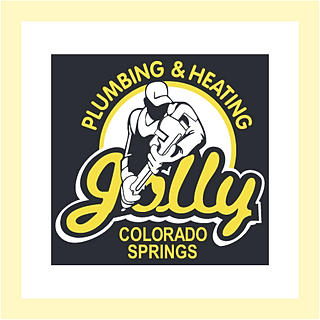Why You Should Never Pour Grease Down the Drain
- Jolly Plumbing
- May 12, 2022
- 2 min read

Your sink is a pretty spectacular piece of engineering if you think about it. It brings fresh water into your home that you can easily use for cleaning, cooking, and drinking. It also allows for the wastewater to drain away without you having to worry about it. Unfortunately, when something goes wrong with your sink’s drain, it can often become a hassle. However, there are some things you can do to prevent problems with your sink’s drain, and that includes never pouring grease down the drain.
Grease Draining Myths
There are some myths that people think are real regarding draining grease down a kitchen sink. The first is that if they run hot water and dish soap, it will help for the grease to remain liquid and be entirely removed from the drain. However, even if that were true you wouldn't be able to remove the grease from your plumbing the one time, over time, it’s not going to be as effective, and you are contributing to a bigger problem in the sewer.
The same is true if you put boiling water down your drains to break up the grease. Often, all this accomplishes is to have the grease pushed down into a part of your plumbing that’s not as easy to access. For example, if you have a garbage disposal, there’s a belief that it can take care of grease, but in fact, grease can damage your garbage disposal and make it not as effective as it gets coated in grease.
Why is Grease in the Drain Bad?
We’ve all been there when cooking. You’ve cooked up some hamburger meat to add to your spaghetti sauce or another tasty dish, and there’s grease in the meat. You don’t want to add that to your plate, so you drain out the grease. Without thinking, you may drain that grease right down into your sink to let it wash away with the running water. It’s a liquid, right? Although it’s a liquid when it’s hot, when it has a chance to cool down, it becomes a slippery and sticky solid.
Cooled-down grease in your pipes can act as the perfect storm for clogs as it can attract other debris that washes down into your drains, such as hair or small food particles. Over time, this can result in your drains getting stopped up. You may notice that your sink doesn’t drain at all or has a slow drain due to the build-up of grease and other things.
Properly Dispose of Grease
The best way to protect your sink from clogs is to properly dispose of grease, oils, and similar substances. You’ll want to drain the grease from your cooking into a container rather than your sink. You can carefully drain it into an old coffee can or another container waiting for garbage day. If the grease or oil has had a chance to solidify, you can carefully wipe it out with a paper towel and dispose of it.
Are you having problems with your drain? Jolly Plumbing can help! Contact us today to discuss your sink issue and how we can fix it. Our professionals can help you get back to using your sink like normal after a grease clog or other problem.
